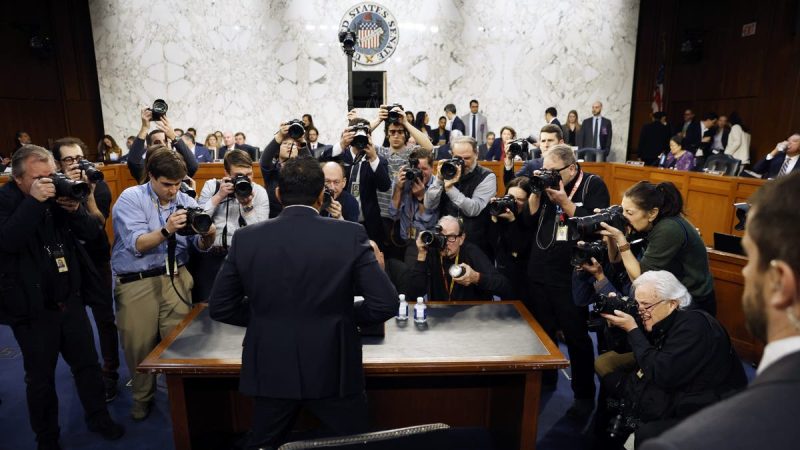
JERUSALEM—The president of the Palestinian Authority (PA) apparently capitulated to the Trump administration by claiming to scrap its long-standing program known as ‘pay for slay,’ which provides payments to Palestinian terrorists and their families.
There are, however, conflicting reports about whether the PA ended the program or is trying to hoodwink the Trump administration.
Israel’s Foreign Ministry spokesman Oren Marmorstein released a statement on X saying, ‘This is a new deception scheme by the Palestinian Authority, which intends to continue paying terrorists and their families through alternative payment channels.’
On Monday, the Palestinian News and Information Agency (WAFA) reported that Mahmoud Abbas ‘issued a decree law revoking the articles contained in the laws and regulations related to the system of paying financial allowances to the families of prisoners, martyrs, and the wounded, in the Prisoners’ Law and the regulations issued by the Council of Ministers and the Palestine Liberation Organizations.’
WAFA noted that, regarding Abbas’ decree, ‘powers of all protection and social welfare programs in Palestine have been transferred to the Palestinian Economic Empowerment Foundation.’ The Times of Israel reported that it had independently confirmed through sources that the revocation happened.
The pay for slay policy gained public attention when Taylor Force, a West Point graduate who served in Afghanistan and Iraq was savagely knifed to death by a Palestinian terrorist on March 8, 2016, while on a tour of Israel. President Donald Trump signed the Taylor Force Act into law in October 2018, after a vigorous campaign by Force’s parents, Robbi and Stuart Force.
‘Abbas’ announcement seems to be a ruse aimed at pulling the wool over President Trump’s eyes,’ Asher Fredman, a former Israeli government official who now is the executive director of the Misgav Institute for National Security, told Fox News Digital.
‘It appears that the terrorists and families of terrorists who received payments under the PA’s ‘pay for slay’ program will continue to receive the same payments, simply via a ‘foundation’ under the control of Abbas, rather than via a ministry under the control of Abbas.’
Fredman added, ‘It remains to be seen whether Abbas truly ends the pay for slay payments, as well as the virulent terror incitement and antisemitism in PA media, schools and summer camps.’
He said the PA announced that the payments to convicted terrorists are moving from the Ministry of Social Development to an independent Palestinian National Economic Empowerment Foundation. The head of the foundation’s board is the minister of social development. The foundation’s general director is also apparently an employee of the Ministry of Social Development, according to her LinkedIn profile. The linkage suggests that the foundation is closely tied to the PA.
Rabbi Abraham Cooper, the associate dean of the Simon Wiesenthal Center, told Fox News Digital, ‘We will rejoice when the PA stops financially rewarding Palestinian terrorists for murdering and injuring Israelis. Abbas’ statement makes no such commitment. Mr. Abbas, you either support and abet terrorism or oppose and help end it.’
The Times of Israel reported that PA officials informed the incoming Trump administration about its plan to pull the plug on the ‘pay to slay’ program.
The thinking behind the PA’s decision is to curry favor with the Trump administration and avoid the strained relations that existed during the first Trump presidency. After Trump recognized Jerusalem as Israel’s capital city in 2017, Abbas boycotted the Trump administration.
The Times of Israel wrote that Monday’s ‘decree is Ramallah’s latest effort to improve ties with Washington and amounts to a major victory for Trump, who managed to secure a concession from the PA that repeated U.S. administrations had worked to bring about.’
The PA is based in Ramallah in the West Bank (known in Israel as the biblical region of Judea and Samaria).
Fox News Digital reported after a late 2023 deal involving the exchange of Palestinian terrorists imprisoned in Israel for the release of Israeli civilians held by Hamas in Gaza that the freed terrorists would receive monthly payments ranging from approximately $535 to $668 for Jerusalem residents.
Jason Brodsky, the policy director of United Against Nuclear Iran (UANI), summed up a recent trend of foreign leaders caving to the Trump administration. ‘I think it speaks to the Trump effect. Foreign leaders fear crossing the president because he knows how to engage in coercive diplomacy, and it produces outcomes which advance U.S. interests like this. Iran and other countries are watching very carefully how the president pressures other governments, and this will shape their decision-making. Thus far, Tehran has been more risk-averse since President Trump has been in office,’ he told Fox News Digital.
Fox News Digital questions to the Palestinian Authority were not answered.



















